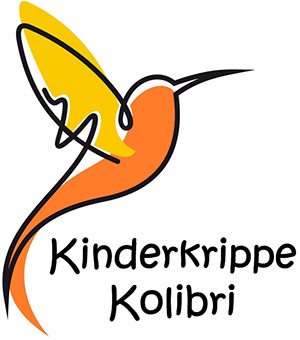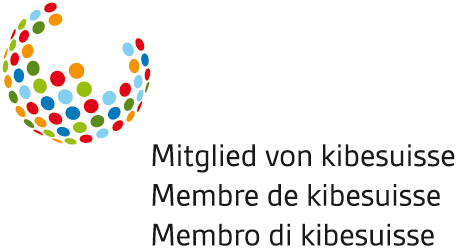Educational concept
Our entire educational concept can be found here. We would like to present some important aspects of it below:
Our values
In our interactions with children, meetings with parents, and teamwork, we are guided by the values we have developed together:
Appreciation, Independence, Fairness and Creativity.
We view our role as companions in each child’s personal educational journey. This means creating an environment where children can be active, explore, ask questions, and communicate. We believe in recognizing and valuing the strengths and weaknesses of both adults and children. We support children in understanding and expressing their own boundaries, as well as respecting those of others.
The settling-in phase
The transition of young children into a nursery can be challenging for both the child and their parents, marking the beginning of a new phase in the child’s life. We provide intensive support to both the child and parents during this period, following our settling-in concept tailored to their needs. Our goal is for the child to feel comfortable in the daycare center and adapt smoothly to their new daily routine.
The initial period in the daycare is crucial for building a relationship between the child and the childcare staff. The child will be separated from their primary caregivers for a few hours regularly, needing to adjust to new caregivers and other children. They leave the familiar family environment and must navigate a new setting and routine.
An initial meeting at the daycare allows parents and the child to get acquainted with the staff and environment. Following this, parents accompany their child to the daycare at specific times, staying in the rooms initially. The first brief separation occurs on the third day. The settling-in phase typically lasts eight days, depending on the child’s comfort level and the time needed to gradually extend their attendance to a full day. During this time, children build relationships with caregivers, familiarize themselves with the rooms, games, and rituals, and integrate with other children. This period is also used to strengthen the bond between the caregiver, child, and parents, supported by detailed discussions.
Throughout the settling-in phase, parents gain a deeper understanding of the nursery, interact closely with caregivers, and gain insight into the daily routine and operations.
Rituals at Kolibri
Rituals are integral to us, structuring the daily routine and providing children with clarity, orientation, and security. Children love and need rituals to navigate the diversity of everyday life in manageable steps. Rituals enhance concentration, facilitate learning, and help children adhere to rules and boundaries.
Our day begins with the morning circle, where we sing and discuss the day’s activities. Wanda, the forest owl, accompanies the children on forest excursions. The tidying-up song signals a change in activities. Birthdays are celebrated with a birthday crown and a special song. Mealtimes are framed by rituals such as washing hands, singing, and tidying up.
Meals
We place great importance on providing balanced, healthy food. We also accommodate individual dietary requirements, such as allergies, in consultation with parents.
Our main meal at lunchtime is sourced from the canteen kitchen of the Baden Regional Care Center, which offers a high-quality, balanced menu. We create our own tailored menu: one or two days a week feature a meat-based dish, while the remaining days focus on vegetarian options. We offer a choice of two side dishes and two types of vegetables, along with a daily salad.
Children can decide how much they want to eat and can help themselves to seconds, promoting independence and helping them learn to listen to their bodies.
Water and tea are always available throughout the day. We prepare breakfast and afternoon snacks ourselves, emphasizing seasonal foods, healthy snacks, and variety. Desserts are reserved for special occasions like birthdays, departures, or celebrations, and are usually homemade and brought in. With our on-site kitchenette, children can occasionally help prepare snacks such as pizza rolls, biscuits, or apple slices.
Hygiene concept
Hygiene and care are integral to our daily routine. This includes washing hands upon entering the daycare, before and after meals, and after using the toilet. Nappy changes and assisting older children with toilet routines are also part of our hygiene practices. We ensure children’s noses are wiped if they have a cold. Consistency is key, so we adhere to the same rules and measures, making hygiene a natural part of everyday life.
Feel free to contact us directly for more details about our hygiene concept.
Care
During morning drop-off, we carefully observe each child for any changes in their skin, movement restrictions, or other abnormalities. If parents report any changes, we document them in the daily schedule and inform the group leader. Throughout the day, we continue to monitor the children, noting any changes and reporting them to parents in the evening.
Diapering and toileting
When changing diapers, each child uses their own diapers provided by the parents. We place a personal changing mat on the changing pad and use water or wet wipes for cleaning. For red or sore bottoms, we apply wound cream, zinc ointment, or a special ointment brought from home if needed. Any abnormalities are discussed with a trained specialist. We disinfect and/or wash our hands after every diaper change.
For older children, we encourage toilet training with positive reinforcement. Depending on their needs or habits, we sit them on the potty or toilet, which is easily accessible for children. This process is closely coordinated with the parents.
For children who already use the toilet independently, we emphasize further promoting their independence.
Brushing teeth
After lunch, we engage in a tooth brushing ritual with the children. Each child has their own toothbrush and cup at the daycare center. We encourage the children to brush their teeth independently first, then we check and assist if needed. After brushing, each child receives a washcloth to clean their hands and face.
Parent involvement
We aim to foster a partnership with parents built on mutual trust and respect. This trust is essential for creating a nurturing environment where children can thrive and engage in meaningful learning experiences.
Our team offers parents support through our pedagogical expertise and experience, assisting them in their daily parenting challenges.
Daily interactions during drop-off and pick-up times are crucial to us. When children are dropped off, we assess their well-being and gain insights into the parents’ state of mind. This helps us understand the child’s potential activities and mood for the day, whether positive or negative. At pick-up, these conversations allow us to share important events from the day and exchange valuable information.
Throughout the daycare period, caregivers guide children through various developmental stages. Observing children’s behavior is a key tool in our educational planning. These non-judgmental observations enable us to identify any early signs of concern and discuss them with parents during assessment meetings. Sharing observations from both home and daycare can be instrumental in supporting specific developmental milestones, such as toilet training.




